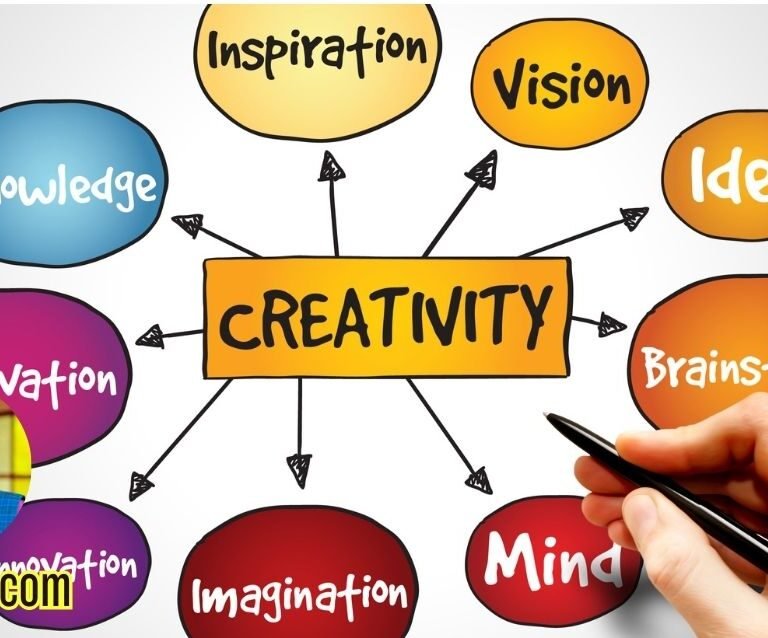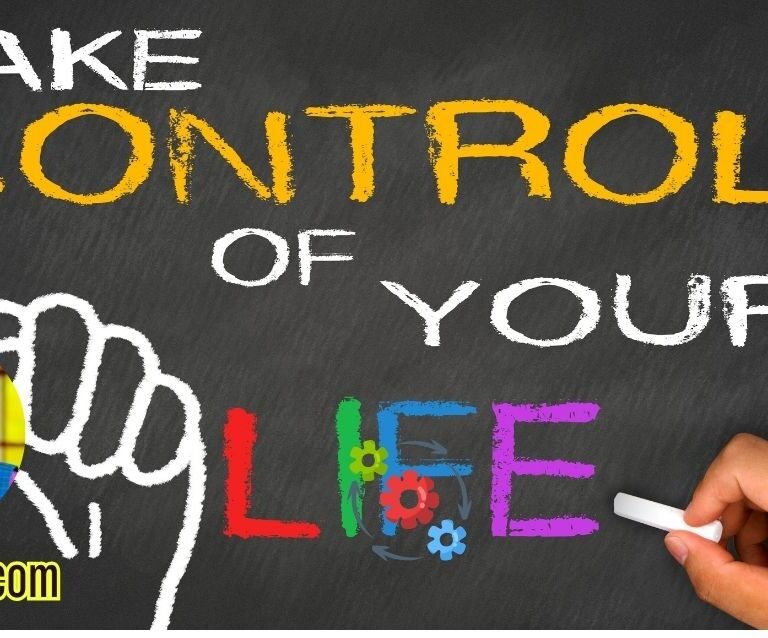The Power of Mistakes
In the quest for personal and professional growth, the perception of mistakes plays a crucial role. Traditionally, society has branded mistakes as failures, often stigmatizing the individuals who make them. However, this perspective prevents us from recognizing mistakes as essential components of the learning process. Instead of viewing them as setbacks, it is important to embrace mistakes as indicators of effort, progress, and courage to venture into the unknown. Such a shift in mindset can have profound implications for both individual development and collective growth.
Mistakes often signify that a person is attempting to push their boundaries, explore new avenues, or challenge existing norms. When we dare to engage in unfamiliar tasks or embark on new projects, the likelihood of encountering errors increases. These instances should not be disheartening; rather, they should be celebrated as evidence of a proactive approach to life. Each mistake presents an opportunity to reflect, analyze, and ultimately improve. Adopting a positive attitude towards errors can lead to greater innovation and creativity, as individuals feel more inclined to experiment without the fear of reprisal.
The acceptance of mistakes as valuable learning experiences fosters a culture that promotes resilience. When individuals are prepared to learn from their errors, they develop skills that contribute to long-term success. This principle is applicable across various contexts—including education, workplace environments, and personal experiences. In these spaces, encouraging a mindset that views mistakes positively can pave the way for healthier communication, collaborative problem-solving, and enhanced overall performance. By reframing our understanding of mistakes, we not only change how we perceive our own experiences but also how we relate to others. Ultimately, this perspective can propel us forward, helping to shape a more competent and agile society.
Why Mistakes Happen: The Nature of Learning
Mistakes are an inevitable part of the learning process, deeply rooted in the psychological and educational aspects of human development. As individuals engage with new concepts or skills, they often face uncertainty and the challenge of mastering unfamiliar territory. In this context, mistakes serve as critical feedback mechanisms, guiding learners toward improved understanding and performance. The interaction between cognitive processes and emotional responses to mistakes reveals how fundamental errors are to growth, whether in educational settings or personal endeavors.
When individuals experiment with new ideas or approaches, they are likely to encounter missteps. This experimentation is essential for innovation and improvement, as it encourages individuals to think outside conventional boundaries. Psychology suggests that the act of making a mistake activates neural pathways associated with learning, prompting individuals to reflect on their actions, reassess their strategies, and formulate better approaches in the future. Thus, mistakes facilitate cognitive reinforcement, enabling deeper comprehension and skill enhancement.
Moreover, mistakes play a vital role in fostering resilience and adaptability. As learners navigate the complexities of acquiring new knowledge, the experience of failure can serve to bolster their determination and motivation. Recognizing that missteps are a natural component of the learning journey encourages individuals to embrace risks and build confidence in their abilities. In this light, mistakes can inspire creativity and innovation, as they provide opportunities to explore alternative solutions and perspectives that may not have been considered otherwise.
Ultimately, understanding why mistakes happen illuminates their essential function in the broader context of learning. They provide invaluable insights into personal capabilities and the process of acquiring new skills, forming a crucial element in the journey toward mastery and self-improvement. Thus, recognizing the significance of mistakes can lead to a more positive attitude toward learning and growth.
The Emotional Impact of Making Mistakes
When individuals encounter mistakes, the emotional reactions can vary significantly. Common feelings include fear, shame, and anxiety, which often stem from societal expectations and personal standards. The fear of making mistakes can lead to a paralysis of action; people may hesitate to try new things, opting instead for the safety of the known. This fear can impede personal and professional growth, locking individuals in a cycle of self-sabotage.
Shame can manifest when one believes that a mistake reflects poorly on their character or competence. This sensation can be deeply rooted in one’s self-perception, making recovery from such feelings challenging. The presence of anxiety, triggered by the anticipation of making a mistake, can create a mental block that inhibits creativity and innovation. These emotional reactions can create a toxic environment, where the focus is on avoiding errors rather than embracing risks that foster growth.
However, it is essential to understand that making mistakes is an inherent part of the learning process, and embracing them can cultivate resilience. When individuals shift their perception of mistakes from a negative viewpoint to one that recognizes them as valuable learning experiences, they begin to develop not only resilience but also emotional intelligence. This shift allows individuals to process their mistakes constructively, enhancing their ability to adapt and recover.
Developing a mindset that views mistakes positively can drastically change one’s emotional landscape. Learning to manage and respond to errors can mitigate negative feelings, fostering an environment where individuals feel secure in taking risks. This approach encourages a culture of innovation and openness, ultimately leading to enhanced personal and collective growth.
Transforming Mistakes into Learning Opportunities
Mistakes are an inevitable aspect of both personal and professional growth. When approached correctly, they can become invaluable learning opportunities. The key to transforming errors into lessons lies in effective analysis and reflection. One powerful technique is reflective journaling, which involves documenting instances of mistakes and analyzing the circumstances surrounding them. This practice encourages individuals to explore their thought processes, emotional responses, and decision-making patterns, leading to greater self-awareness and improvement. By continually writing about mistakes, individuals can trace patterns and habitual errors, allowing them to develop strategies for avoiding similar pitfalls in the future.
Another effective method for learning from mistakes is seeking constructive feedback from peers, mentors, or supervisors. Engaging in open, honest discussions about one’s errors can provide new perspectives and insights that the individual might overlook. This approach fosters a culture of transparency and vulnerability. By listening to others’ observations, it becomes easier to identify areas for improvement. Additionally, it cultivates a supportive environment where mistakes are normalized as part of the learning process, ultimately enhancing collaboration and communication among team members.
Reframing the narrative surrounding mistakes is equally crucial. Rather than viewing errors as failures, focusing on growth can significantly shift one’s mindset. Adopting a growth mindset encourages individuals to appreciate mistakes as stepping stones toward mastery and success. Reminding oneself that mistakes contribute to resilience and capability is vital for personal development. By consciously changing the way we interpret our missteps, we can foster an attitude that embraces challenges and values perseverance.
In summary, transforming mistakes into learning opportunities requires intentional reflection, seeking external feedback, and adopting a growth-oriented perspective. By implementing these strategies, individuals can create a cycle of continuous improvement, leading to enhanced performance and greater overall success.
Success Stories: Learning from Prominent Figures
Throughout history, numerous prominent figures have encountered significant challenges and failures on their paths to success. These inspirational stories underscore the notion that mistakes are often the precursors to remarkable achievements. One notable example is Thomas Edison, the renowned inventor who famously stated, “I have not failed. I’ve just found 10,000 ways that won’t work.” Edison faced countless setbacks while developing the electric light bulb but persisted through his failures, ultimately leading to his groundbreaking success that transformed modern life.
In the realm of sports, Michael Jordan’s journey exemplifies the notion of learning from mistakes. Jordan, considered one of the greatest basketball players of all time, was cut from his high school basketball team. This initial failure propelled him to improve his skills, leading him to a legendary career in the NBA that includes six championships with the Chicago Bulls. Jordan’s experience illustrates how setbacks can serve as catalysts for personal growth and resilience.
Similarly, in the business world, J.K. Rowling faced numerous rejections before finally publishing the Harry Potter series. After experiencing financial hardship and the stress of single motherhood, she persevered against the odds. Rowling’s determination in the face of multiple setbacks reflects the idea that failures can pave the way to extraordinary success. The Harry Potter books eventually became a global phenomenon, emphasizing the value of tenacity and belief in oneself, despite adversities.
These stories from various fields remind us that mistakes are not merely deterrents; instead, they often lead to learning and innovation. Each prominent figure’s journey demonstrates that embracing one’s failures can ultimately inspire growth, resilience, and unparalleled success. As we analyze these experiences, it becomes evident that our own mistakes may play a crucial role in shaping our paths forward.
Building a Culture that Embraces Mistakes
Organizations that cultivate a culture embracing mistakes enable innovation and growth. By shifting the perception of mistakes from failures to valuable learning experiences, leaders can encourage employees to take calculated risks. A pivotal aspect of this cultural transformation involves fostering psychological safety, allowing team members to express ideas and concerns without fear of negative consequences. When individuals believe they can share their thoughts openly, they are more likely to experiment and innovate, ultimately leading to superior outcomes.
One effective strategy for cultivating this environment is to lead by example. Leaders should openly acknowledge their own mistakes and discuss the lessons they learned. This vulnerability encourages team members to do the same, creating a ripple effect that promotes openness and honesty. In addition, organizations can implement regular reflection sessions, where employees analyze recent projects, identifying what worked well and highlighting what didn’t. This practice shifts the focus from blame to collective learning, reinforcing the notion that mistakes are simply part of the innovative process.
Moreover, developing supportive feedback systems is crucial in reinforcing a culture that embraces mistakes. Instead of punitive measures, organizations should adopt constructive feedback methods that emphasize improvement. Leaders can train team members to provide and receive feedback effectively, which helps create a cycle of continuous enhancement. Peer reviews, where colleagues offer suggestions and perspectives, can also contribute to a culture that acknowledges and learns from errors.
Ultimately, embracing mistakes as part of the organizational fabric nurtures creative thinking and problem-solving. By prioritizing psychological safety and fostering open communication, organizations not only enhance employee satisfaction but also drive better performance. It is essential for leaders to remain committed to this cultural shift, ensuring that mistakes are viewed as stepping stones toward greater innovation.
Mindset Shift: From Fear of Failure to Growth Mindset
Adopting a growth mindset is essential in transforming one’s perspective on mistakes and failures. A growth mindset is the belief that one’s abilities and intelligence can be developed over time through dedication and hard work. This fundamental shift is crucial for viewing mistakes as valuable learning opportunities rather than as setbacks. To nurture this mindset, individuals must begin by reframing their beliefs about failure. Instead of perceiving mistakes as a reflection of their abilities, they should focus on the lessons learned from such experiences. In doing so, individuals empower themselves and others to take risks without the paralyzing fear of failure.
One effective way to cultivate a growth mindset is through self-reflection. Regularly evaluating one’s experiences, particularly the mistakes made, enables individuals to identify areas for improvement and recognize progress over time. Keeping a journal where successes and failures are documented can provide insights into patterns of thought and behavior, fostering an understanding that mistakes are part of the overall journey. Furthermore, sharing these reflections with peers or mentors can encourage supportive dialogues that reinforce positive thinking towards challenges.
Additionally, seeking feedback is critical in nurturing a growth mindset. Constructive criticism offers opportunities for growth and improvement, allowing individuals to view their mistakes from a different perspective. Encouraging a culture of open communication in both personal and professional contexts can significantly reduce the stigma associated with failure, promoting an environment where everyone feels safe to express themselves and learn from their mistakes.
Ultimately, the mindset shift from fear of failure to a growth mindset requires consistent effort and open-mindedness. By recognizing that mistakes are an integral part of the learning process, individuals can foster resilience and gain the confidence needed to embrace challenges head-on, thus paving the way for continuous development and personal growth.
Practical Tips for Overcoming the Fear of Making Mistakes
Fear of making mistakes is profoundly pervasive in both personal and professional domains, often paralyzing individuals from taking essential actions. However, numerous strategies can help one combat this fear and foster a healthier relationship with imperfection.
One effective technique for overcoming this apprehension is desensitization to failure. This involves gradually exposing oneself to situations where mistakes could occur. By intentionally placing oneself in low-stakes scenarios where errors are acceptable, individuals can acclimate to the possibility of failure. This practice not only diminishes the emotional intensity associated with making mistakes but also instills resilience over time.
Visualization exercises can also play a vital role in this transformative journey. Engaging in positive visualization entails imagining oneself successfully handling a situation where mistakes might arise. This practice cultivates a mindset that is not only focused on potential setbacks but also empowered by the possibilities of effective problem-solving and perseverance. By mentally rehearsing various outcomes, one can significantly reduce the anxiety surrounding actual decision-making processes.
Building self-confidence in decision-making is crucial in reducing the fear of mistakes. One effective method is to establish a systematic approach to making choices. This involves weighing the pros and cons, seeking advice from trusted individuals, and understanding that satisfying outcomes often arise from informed decisions. Furthermore, maintaining a journal to reflect on past decisions and their subsequent outcomes can foster a sense of progress and growth, reinforcing the notion that errors are part of the learning trajectory.
When individuals embrace their imperfections and acknowledge that mistakes are inherent to the human experience, they can foster personal growth and resilience. By implementing these practical techniques, one can begin to navigate the fear of making mistakes, ultimately enhancing their capacity for bold actions and endeavors.
The Journey is Just as Important as the Destination
Throughout our lives, we often find ourselves set on a journey towards various goals—be it personal or professional. As we navigate these paths, it is essential to recognize that mistakes are not merely obstacles; rather, they serve as critical components of our development. Embracing mistakes demonstrates our willingness to try and to grow, ultimately affirming our commitment to the challenges that lie ahead.
Each error or misstep presents a unique opportunity for reflection and learning. By examining what went wrong and understanding the underlying reasons, we can gain invaluable insights that shape our future decisions. This iterative process enhances our resilience, fostering the ability to adapt and evolve in response to unforeseen challenges. Thus, it is imperative to shift our perspective about mistakes from a negative connotation to a more constructive lens, perceiving them as necessary feedback rather than failures.
Moreover, the journey itself holds profound significance in our overall experience. As we pursue our ambitions, we cultivate resilience, tenacity, and an enriched skill set. Each stage of this journey, adorned with trials and blunders, builds character and sharpens our focus, ultimately steering us toward our goals. The acknowledgment of our mistakes prompts personal growth and reinforces our resolve to strive for excellence.
In conclusion, mistakes are a testament to our efforts and represent our resolve to challenge ourselves. Recognizing and accepting them as part of our journey enables us to fully appreciate the outcomes we seek. As we continue to tread our paths, let us embrace every miscalculation as a stepping stone towards success, ensuring that the journey remains just as rewarding as the destination itself.









